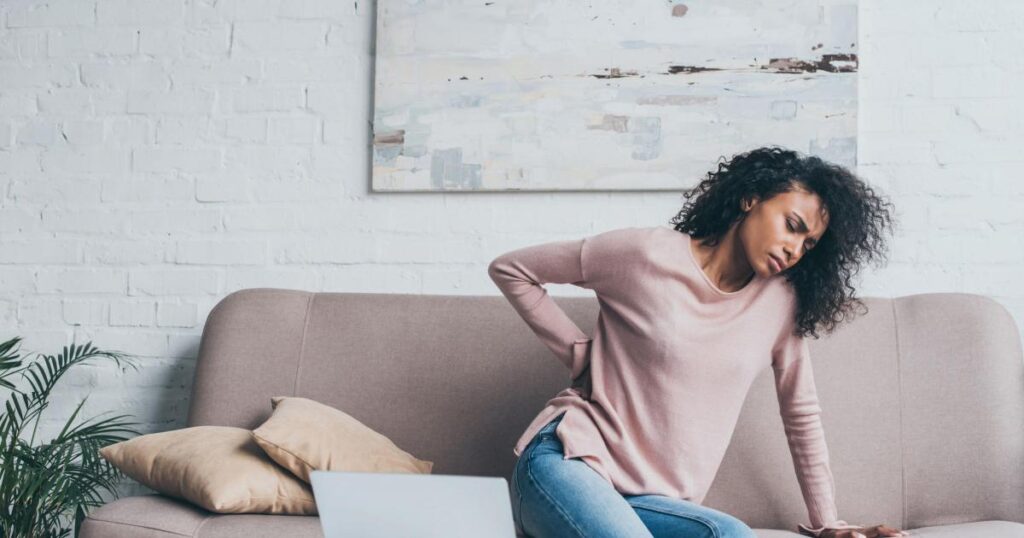The question is, why?
Brighton has long been seen as a health-conscious, active city. We’ve got beaches, the Downs, cycle lanes, yoga studios, and vegan cafés galore. Yet the very demographic expected to be at its physical peak is now reporting aches and stiffness more commonly associated with ageing. From medical school students to young professionals, I’ve heard the same phrases over and over again: “My back’s been killing me,” “I can’t sit for long,” or even “I had to get a standing desk.”
Let’s unpack what’s going on—and more importantly, what can be done about it.
The Sedentary Generation
We’re facing a paradox: people are more aware of health than ever before, yet our lifestyles are increasingly sedentary. Brighton’s young adults may be swapping steak for seitan and joining five-a-side leagues, but many are also spending the majority of their day hunched over laptops, scrolling on phones, or working long hours at desks—often in makeshift home-office set-ups that would make a physiotherapist wince.
Recent studies show the average adult in the UK sits for over nine hours a day. For students or junior office workers, that figure can be even higher. Posture suffers when we’re not moving. The spine is a beautifully designed structure that thrives on mobility. When we’re inactive, our core muscles weaken, our hip flexors tighten, and our spinal alignment suffers.
Even short periods of inactivity can cause the smaller stabilising muscles of the back to become lazy. Once that happens, the larger muscles overcompensate, leading to stiffness, strain, and eventually pain.
The Pandemic Effect
It’s impossible to discuss young people’s health without acknowledging the lingering impact of Covid-19. During lockdowns, gyms closed, routines collapsed, and kitchen chairs became office chairs. Many young adults began working or studying from home without the ergonomic support that employers or universities might provide.
The problem is, habits formed in lockdown have lingered. A 2023 survey showed that 64 per cent of UK workers under 35 now work remotely at least part of the week. And while remote working has its perks—reduced commuting stress and better work-life balance—it’s also enabled a new wave of musculoskeletal issues due to poor home setups and reduced incidental movement (like walking to a bus stop or climbing office stairs).
Tech Neck and Digital Posture
It’s not just sitting that’s the problem. The average person now checks their phone 96 times a day. This constant forward tilt of the head—sometimes called “tech neck”—places up to 60 pounds of pressure on the cervical spine especially when we look down at devices.
The issue is compounded by time spent gaming, streaming, or scrolling in bed. The spine, once again, pays the price.
Mental Health and the Mind-Body Connection
Brighton has one of the youngest populations in the UK, with two universities and a thriving creative scene. It also has one of the highest rates of reported anxiety and depression in the South East. What many people don’t realise is that stress and emotional tension can manifest physically—especially in the neck, shoulders, and back.
When we’re stressed, we unconsciously clench muscles. Over time, this tension becomes chronic, and pain follows. In some cases, there may be no structural issue at all—just persistent muscular guarding in response to emotional strain.
What Can We Do?
The good news is that most cases of early-onset back pain in young people are mechanical, meaning they’re caused by movement patterns and posture rather than underlying disease. That means they’re treatable and preventable.
Here are five simple, evidence-based tips for young adults in Brighton:
1. Move every 30 minutes – Even a brief stretch or short walk can interrupt long sitting sessions and reactivate core muscles.
2. Check your set-up – If you’re working from home, invest in a proper chair, elevate your screen, and use an external keyboard if needed. Your spine will thank you.
3. Build core strength – Yoga, Pilates, or even a few planks a day can dramatically improve spinal support.
4. Look up – Be conscious of how often you’re looking down at your phone. Bring it to eye level or take screen breaks.
5. Address stress – Don’t underestimate the power of mindfulness, therapy, or even just talking to someone about what’s going on. A healthy mind supports a healthy back.
Final Thoughts
Brighton is a beautiful, vibrant city with every opportunity to live well—but only if we take care of the bodies that carry us through it. Early back pain is a warning sign, not a life sentence. And if young people in our city can begin to understand and adapt now, we may just turn the tide before the next generation finds itself in even worse shape.
So if you’re reading this hunched over your phone on the Number 7 bus—sit up, stretch, and remember: your spine wasn’t built to suffer in silence.
Contact Dr Franks Davis by email at frank.davis1@nhs.net
Source link
[Featured]
[Just In]




